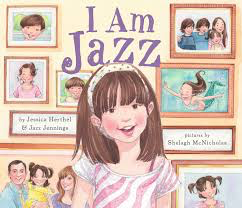Category: Parenting
-

“I Am Jazz” Community Reading
This month Santa Cruz families will come together to read a book at the library. Yes, this happens all the time, but not with this book and this message. “I am Jazz” was published in 2014, co-written by 14-year-old Jazz Jennings, a transgender activist whose life had been profiled in a television documentary. Although the…
-
Gifted Kids: The disconnect between input and output
It’s hard to educate a child who is profoundly asynchronous, as many gifted children are. While a young gifted child may have a high school level vocabulary, they may struggle to hold a pencil. And the disconnect becomes even more pronounced as the child grows and seems to become more mature. When a child can…
-
6 Takeaways from Research on Teen Brain Development
Parenting in the teen years can be supported by some basic knowledge about the teenage brain. Much of what you think you know about teen development may have been disproven.
-
Liar, liar, pants on fire!
On my morning walk, it occurred to me to think about why we tell kids not to lie. I can’t imagine why this subject occurred to me! Obviously, none of us wants our kid to be a liar. Imagine: If being a liar weren’t that big a deal, we’d be a lier. But we’ve even…
-
On the other side of the free range
Everyone now knows that helicopter parenting is bad, but our culture continues to load guilt, and consequences, on moms who give their children some freedom.